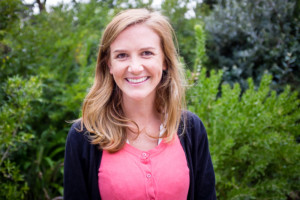from 13:00-14:00
19 Jonkershoek Road
Stellenbosch
online using the link HERE
Across several southern African countries, we have seen a proliferation of wildlife-based land uses on private and community land. Privately-owned wildlife ranches in South Africa now cover over double the land in public protected areas. Ecotourism and hunting enterprises can contribute significantly to rural livelihoods, and South Africa’s Biodiversity Economy Strategy is focused on growing and transforming the wildlife economy.
Despite the emphasis being placed on wildlife ranches as both a conservation and development strategy, little is known about landholders’ objectives, resultant management strategies, conservation and development outcomes and trade-offs. Ultimately, we need an understanding of the resilience of wildlife ranching in a changing world. Rhino poaching presents a persistent challenge, global anti-hunting sentiments are on the rise, and the pandemic shut down tourism. Policy needs to recognise that the diversity and adaptive capacity of wildlife ranches can be their strength.
Hayley will share insights from her research seeking to understand the social-ecological dynamics, outcomes, and resilience of wildlife ranching.
Join us as Dr. Hayley Clements takes us through the fascinating topic that is the Resilience of wildlife ranching in a changing world.
 Hayley is an interdisciplinary conservation scientist who is interested in applying social-ecological systems thinking to identify resilient and equitable conservation opportunities in a changing world. Her PhD at the University of Cape Town (South Africa) assessed the social-ecological drivers of private land conservation in South Africa. She then undertook postdocs researching protected area effectiveness at Monash University (Australia) and resilience indicators at the CST.
Hayley is an interdisciplinary conservation scientist who is interested in applying social-ecological systems thinking to identify resilient and equitable conservation opportunities in a changing world. Her PhD at the University of Cape Town (South Africa) assessed the social-ecological drivers of private land conservation in South Africa. She then undertook postdocs researching protected area effectiveness at Monash University (Australia) and resilience indicators at the CST.
Hayley is now leading a project entitled “Quantifying the biodiversity planetary boundary for Africa”, funded by a Jennifer Ward Oppenheimer Research Grant. The upcoming decade is critical for African countries to navigate development in ways that do not surpass a boundary of biodiversity loss, beyond which human well-being is negatively affected. This requires a measure of what biodiversity remains, where, and how the loss of biodiversity influences human well-being across different ecosystems and land uses. The project addresses this knowledge gap, promoting understanding of where investing in nature can deliver net benefits for people. Hayley is also affiliated with the University of Helsinki, researching the role of sustainable use in supporting biodiversity conservation, people and the economy in southern Africa.